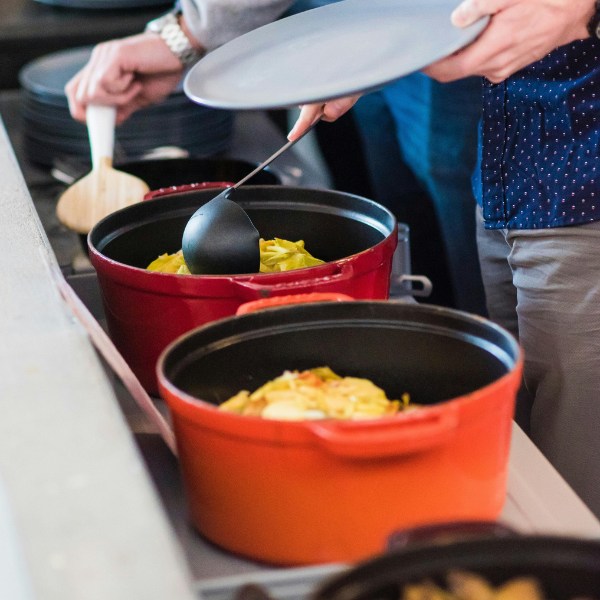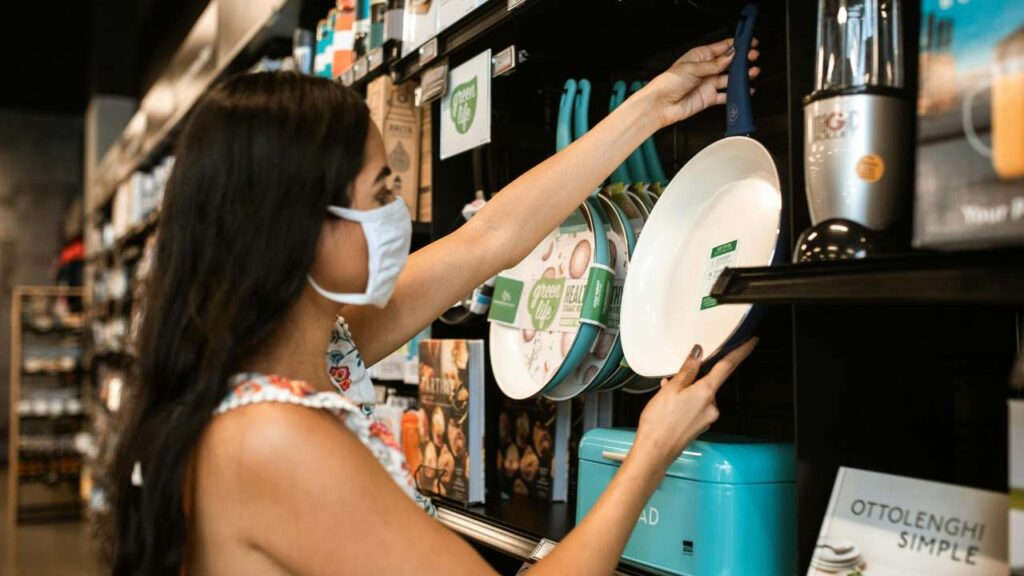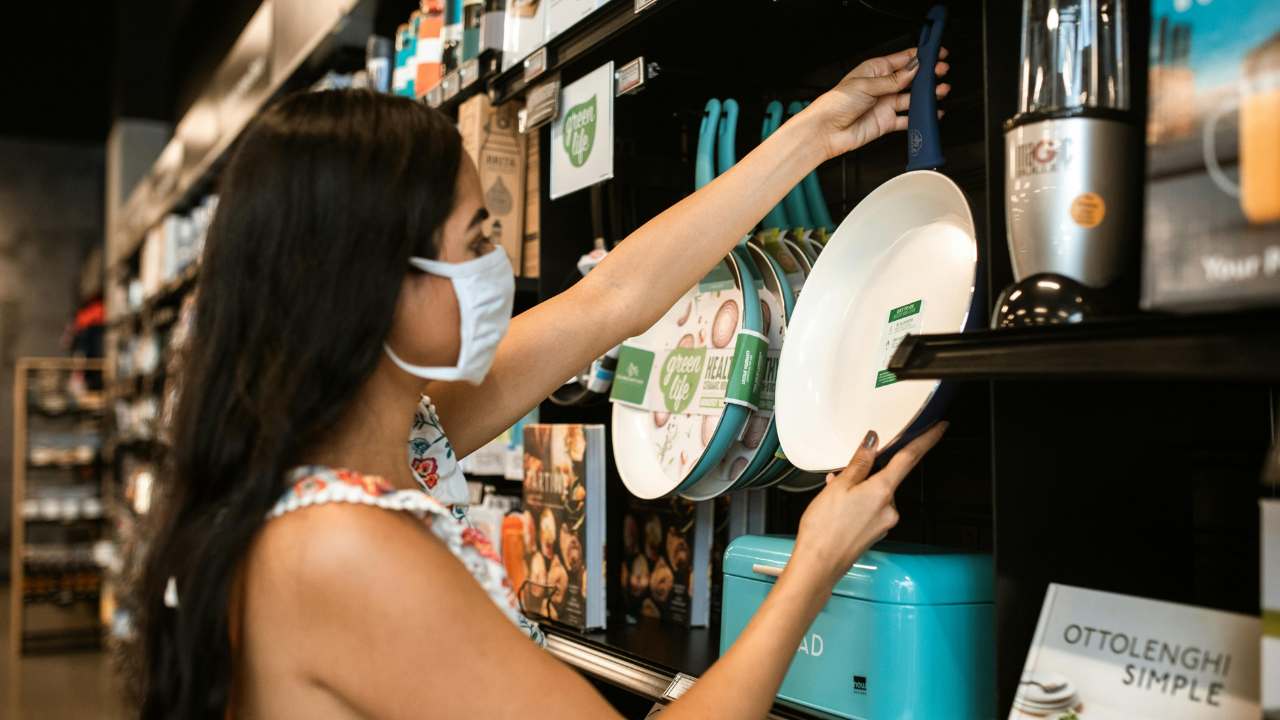Choosing the right cooking pots is essential for maintaining your health and enjoying safe, non-toxic meals. Many people often wonder, “What is the healthiest cooking pots to use?” The materials and design of your cookware play a crucial role in your overall well-being, and selecting the healthiest options can elevate your cooking experience.
This guide explores seven top types of cooking pots that promote healthy cooking practices and helps you make informed choices for your kitchen.
What is the healthiest cooking pots to use?
When it comes to choosing cookware, safety and health benefits are top priorities. The following sections break down the best types of cooking pots, their features, and how they contribute to healthier cooking habits.

1. Stainless Steel Pots
Stainless steel is one of the safest and most durable cookware materials available. It doesn’t react with food, ensuring that your meals remain free from harmful chemicals.
- Key Benefits:
- Non-reactive surface ensures no leaching of metals.
- Durable and easy to clean.
- Ideal for cooking a variety of dishes.
- Why It’s Healthy: Stainless steel cookware is perfect for anyone concerned about non-toxic cooking. As it doesn’t release harmful substances, it’s among the best pots for healthy cooking.
2. Cast Iron Pots
Cast iron is known for its exceptional heat retention and natural non-stick surface when seasoned properly.
- Key Benefits:
- Naturally adds small amounts of iron to your food.
- Excellent heat distribution.
- Long-lasting and versatile.
- Why It’s Healthy: Cast iron is a safe pot for cooking meals, especially for those looking to increase their iron intake naturally. When properly maintained, it provides a non-toxic cooking experience.
3. Ceramic Pots
Ceramic cookware is popular for its non-toxic and non-reactive nature.
- Key Benefits:
- Free from harmful coatings.
- Ideal for slow cooking and baking.
- Easy to clean.
- Why It’s Healthy: Ceramic pots are among the best choices for healthy cookware, as they don’t leach chemicals into food. They’re a great option for non-toxic cooking pots.
4. Glass Pots
Glass cookware is an excellent choice for those looking to avoid metals altogether.
- Key Benefits:
- Completely inert and non-reactive.
- Easy to monitor cooking progress.
- Free from harmful coatings.
- Why It’s Healthy: Glass pots are perfect for anyone with sensitivities to metals. They are non-toxic and among the safest pots for cooking meals.
5. Titanium Pots
Titanium cookware is lightweight, durable, and resistant to scratches.
- Key Benefits:
- Non-reactive and safe for all types of cooking.
- Extremely lightweight.
- Long-lasting.
- Why It’s Healthy: Titanium is considered one of the healthiest cooking materials as it doesn’t react with acidic or alkaline foods, ensuring safety.
6. Hard-Anodized Aluminum Pots
Hard-anodized aluminum is specially treated to create a durable, non-reactive surface.
- Key Benefits:
- Resistant to scratches and corrosion.
- Even heat distribution.
- Safe for high-temperature cooking.
- Why It’s Healthy: Unlike regular aluminum, hard-anodized cookware is non-reactive, making it a healthier alternative for everyday use.
7. Copper Pots with Safe Lining
Copper pots are loved for their excellent heat conductivity but should always have a safe lining like stainless steel.
- Key Benefits:
- Exceptional heat distribution.
- Aesthetic appeal.
- Durable when properly maintained.
- Why It’s Healthy: Copper pots lined with a safe material are great for healthy cooking, as they prevent copper leaching into food.
Comparison Table of Healthy Cooking Pots
| Type | Key Features | Health Benefits |
|---|---|---|
| Stainless Steel | Non-reactive, durable, versatile | Doesn’t leach chemicals |
| Cast Iron | Heat retention, natural non-stick | Adds natural iron to food |
| Ceramic | Non-toxic, easy to clean | Safe for non-toxic cooking |
| Glass | Inert, non-reactive | Ideal for sensitive individuals |
| Titanium | Lightweight, scratch-resistant | Non-reactive, long-lasting |
| Hard-Anodized Aluminum | Durable, even heat distribution | Safe alternative to regular aluminum |
| Copper with Lining | Excellent heat conductivity | Prevents copper leaching |
Safe Tips for Using Healthy Cookware

To ensure you get the most out of your healthy cookware, follow these tips:
- Avoid Overheating: High heat can damage non-stick coatings and cause harmful fumes.
- Use Proper Utensils: opt for wooden or silicone utensils to avoid scratching non-stick surfaces.
- Clean Gently: Use mild detergents and soft sponges to maintain your pots’ longevity.
- Season Your Cookware: For cast iron and some stainless steel pots, regular seasoning can improve their performance.
- Replace Damaged Cookware: Discard any pots with damaged coatings to prevent leaching of harmful substances.
Related Article: 7 Expert Tips to Choose Safe Non-Stick Pans for Healthy Cooking
Conclusion
Choosing the healthiest cooking pots is an investment in your health and culinary experience. From stainless steel to ceramic and glass, each type has unique benefits that cater to different needs. By understanding the materials and their impact, you can select the safest pots for cooking meals while enjoying non-toxic, healthy cooking. The next time someone asks, “What is the healthiest cooking pots to use?” you’ll have all the answers.
FAQ’s
What is the healthiest cooking pots to use?
The healthiest cooking pots include stainless steel, ceramic, glass, and titanium, as they are non-toxic and safe for everyday cooking.
Are non-toxic cooking pots more expensive?
Non-toxic cookware can be slightly pricier but is a worthwhile investment for health and durability.
How do I maintain healthy cookware?
Clean gently with mild detergents, avoid using metal utensils, and replace damaged pots.
Can cast iron pots be used for all types of cooking?
Yes, cast iron pots are versatile and suitable for most cooking methods, though they require seasoning.
Are hard-anodized aluminum pots safe?
Yes, hard-anodized aluminum pots are safe as their non-reactive surface prevents leaching of harmful substances.


2 thoughts on “7 Best Types of Healthy Cooking Pots You Should Be Using Right Now”